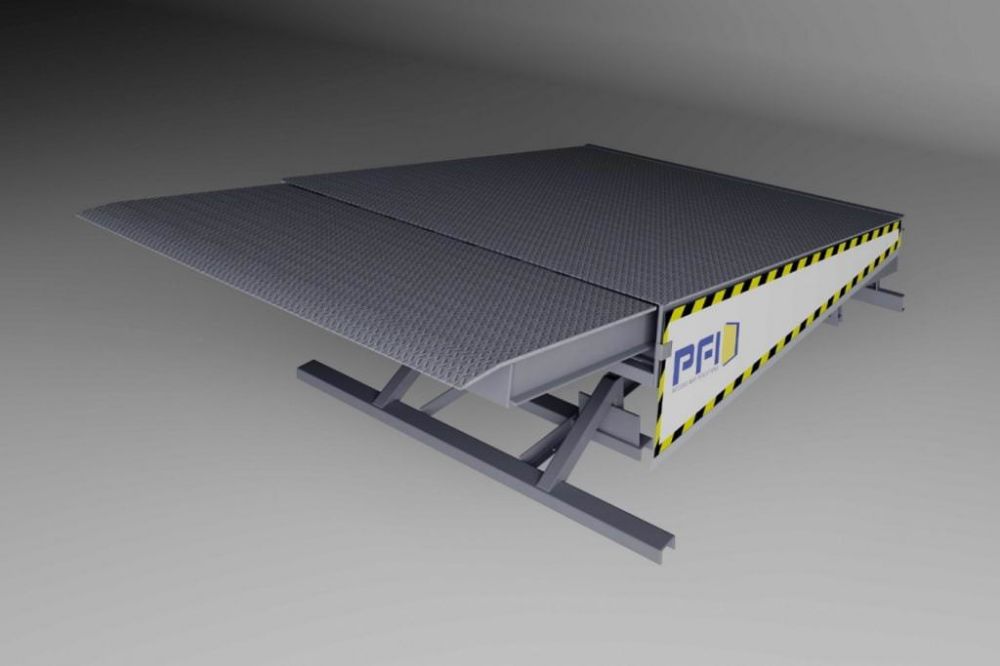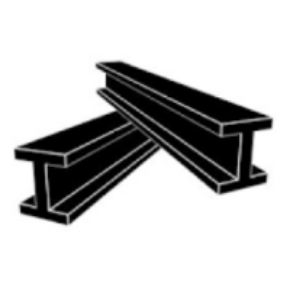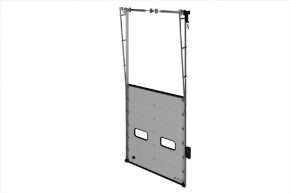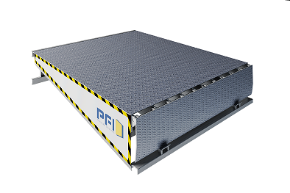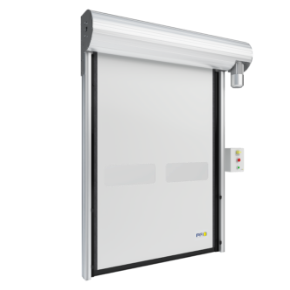A dock leveler is a piece of equipment used at loading docks to facilitate the smooth and efficient transfer of goods between a dock or warehouse and a truck or trailer. It is designed to bridge the gap and adjust the height difference between the dock and the trailer bed, allowing forklifts, pallet jacks, or other material handling equipment to easily move cargo in and out of the truck or trailer.
Dock levelers come in various designs and can be operated using different mechanisms, such as mechanical, hydraulic, or air-powered systems. They typically have a hinged lip that extends to create a ramp between the dock and the truck bed, ensuring a smooth transition for the handling equipment.
Some common types of dock levelers include:
Mechanical dock levelers: These are operated using a spring and counterbalance system. The operator releases the leveler by pulling a chain, and the leveler's lip extends to make contact with the trailer bed.
Hydraulic dock levelers: These levelers use a hydraulic system to lift and lower the platform. They are activated with a push button, providing smooth and easy operation with minimal manual effort.
Air-powered dock levelers: These levelers use an airbag or bellows system to raise and lower the platform. They are energy-efficient and require less maintenance than mechanical levelers, but they may not provide the same level of durability as hydraulic systems.
Edge-of-dock levelers: These are smaller, more compact levelers that mount directly to the edge of the dock. They are generally more cost-effective and suitable for smaller operations with limited space.
Dock levelers play a crucial role in modern logistics and supply chain operations, ensuring efficient and safe loading and unloading of goods at warehouses, distribution centers, and other facilities with loading docks.

Where are dock levelers used?
Dock levelers are used in various settings where loading and unloading of goods between a facility and a transport vehicle is required. These include, but are not limited to:
Warehouses: Dock levelers are commonly used in warehouses to facilitate the movement of goods in and out of storage areas. They help to streamline the loading and unloading process, improving efficiency and productivity.
Distribution centers: These facilities, which serve as hubs for the storage and distribution of goods, rely on dock levelers to ensure smooth and efficient transfer of products between trucks and the center itself.
Manufacturing plants: In manufacturing facilities, dock levelers are used to facilitate the movement of raw materials, components, and finished products between the plant and transport vehicles.
Retail stores and supermarkets: Larger retail establishments and supermarkets with dedicated loading docks often utilize dock levelers to handle the receipt and dispatch of goods.
Cold storage facilities: Dock levelers play a crucial role in maintaining temperature-controlled environments during the loading and unloading process in cold storage facilities, minimizing temperature fluctuations and potential product spoilage.
Transportation hubs: Airports, seaports, and rail terminals use dock levelers to manage the transfer of cargo between various modes of transportation and storage areas.
Food processing plants: In the food industry, dock levelers are essential for maintaining hygiene standards and ensuring efficient loading and unloading of perishable goods.
Pharmaceutical and chemical industries: Dock levelers are used to handle the movement of sensitive or hazardous materials, ensuring that they are transferred safely and efficiently between transport vehicles and facilities.
Dock levelers are versatile pieces of equipment that play a vital role in the logistics and supply chain operations across a wide range of industries and settings, contributing to overall efficiency, safety, and productivity.
What are the advantages of hydraulic dock levelers ?
Hydraulic dock levelers offer several advantages over mechanical or air-powered dock levelers, making them a popular choice for many loading dock operations. Some key benefits include:
Ease of operation: Hydraulic dock levelers are typically easier to operate, as they require minimal manual effort. They can be activated with the simple push of a button, making loading and unloading more efficient and less strenuous for workers.
Durability and longevity: Hydraulic systems are known for their durability and ability to withstand heavy loads and frequent use. They are less prone to wear and tear, which means less downtime for maintenance and repairs.
Safety: Hydraulic dock levelers have built-in safety features, such as velocity fuses and lip keepers, that help prevent accidents and injuries during operation. These features help ensure that the leveler remains stable and secure, even in the event of a sudden change in load distribution.
Smooth operation: Hydraulic dock levelers provide a smoother transition between the dock and the trailer, reducing the risk of damage to both goods and equipment. This is especially important for delicate or sensitive cargo.
Adjustable working range: Hydraulic levelers offer greater adjustability in terms of height and working range. This makes them more versatile, as they can accommodate a wider variety of trailer sizes and designs.
Lower maintenance costs: Since hydraulic systems have fewer moving parts than their mechanical counterparts, they often require less maintenance. This can save time and money over the long term.
Energy efficiency: Hydraulic dock levelers generally consume less energy compared to air-powered systems. This can result in cost savings and a reduced environmental impact.
Noise reduction: Hydraulic systems tend to operate more quietly than air-powered or mechanical systems, which can improve the working environment for employees.
Overall, hydraulic dock levelers offer a combination of ease of use, durability, safety, and operational efficiency, making them a popular choice for many businesses with loading dock operations.
